Nearly 1k corruption crimes at 1bl identified in Tatarstan
7 Days: from the passions around the Tatar language to the new tourist introductions in Kazan
What areas are the most corrupt in Tatarstan? Who promotes the law ''against ethnic languages''? How will Kazan surprise the tourists of the World Cup 2018? Why does journalism today have not enough staff resources? These and other issues formed the basis of the weekly information and analytical programme 7 Days, broadcasted on TNV channel. Read more details in the review of Realnoe Vremya.
The most corrupt
Facts that just shock a normal person were announced at the latest meeting of the Commission on coordination of anti-corruption work in the Republic of Tatarstan. In the report, the head of the office of the President of the Republic of Tatarstan on anti-corruption policy, Mars Badrutdinov, exposed egregious examples of squandering of municipal lands, corruption schemes in construction and obtaining state orders circumventing tenders.
For example, already former chief physician of the Republican clinical ophthalmological hospital Aydar Amirov created, according to Badrutdinov, a network of affiliated commercial structures that made money on public procurement. Just one example, since 2016 the hospital purchased soft lenses for eyes from the manufacturer of the company Vatan, Naberezhnye Chelny. There is no crime here, but the medical institution of Amirov purchased them through two intermediary firms. As the check revealed, the hospital purchased the lenses from the manufacturer at a price at least one and a half times higher. For comparison, in Sverdlovsk Oblast, one such lens cost the local hospital at a price of 962 rubles, in the Republic of Bashkortostan it was purchased for 1,500 rubles, but we paid 2,500 rubles.
Lyudmila Gunya, a patient of the hospital, one can say, was lucky, she was not taken additional funds and the operation itself was carried out for free according to a waiting list. But the check of the anti-corruption department revealed ignoble facts when the waiting list was artificially prolonged to create a fuss and even included the dead, as well as those who had already made the operation at their own expense.
Alas, questionable procurement schemes have been also identified in other subordinate institutions of the ministry of health, including the largest ones: the Republican Oncology Centre and the Republican Clinical Hospital (RCH). The anti-corruption specialists also found a significant overestimation of prices in the procurement of drugs for cancer patients, for some items up to 200%.
''Looking at permissiveness and violations of the head of the ministry, subordinates and municipalities also did not comply with the requirements of the laws. Thus, in violation of the law, the ministry did not conduct anti-corruption checks. It concerns 150 chief physicians, 10 directors of medical colleges and 150 employees of the ministry,'' Batrutdinov reported.
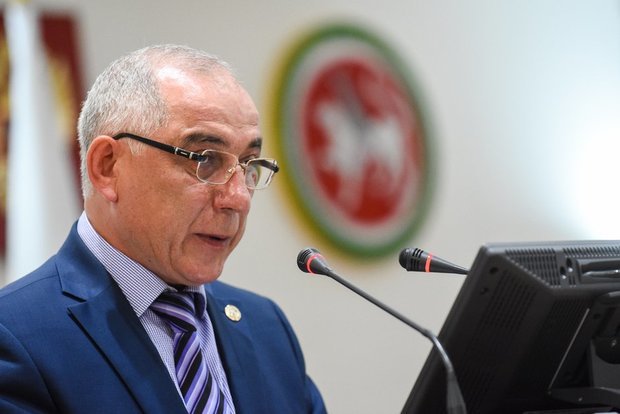
In education system of Tatarstan, the most common offense — illegal holding of more than one office. This is when officials from the department of education, like it was in the Mendeleev district, employ themselves in the subordinate organizations for additional education of children. Hours of employment in the workplace of these people, of course, coincided, but this did not prevent them from getting double wages. Part-time work in commercial structures is a common phenomenon for many municipal officials from education and health care. Similar cases were recorded in Apastovsky district, Kazan and Nizhnekamsk.
More than 800 corruption crimes totaling about 1 billion rubles have been revealed in Tatarstan by the results of last year. The very fact of such a number of offenses indicates the large scale of the problem. Errors in the declarations of officials — only the tip of the iceberg, and at the bottom — the crimes associated with so-called conflict of interest, the patronage of pocket business structures, fraud with lands, bribery.
Frauds with land plots have become another commonplace for some unscrupulous municipal employees, stated at the meeting in the Kazan Kremlin. According to the results of the inspections, more than 340 hectares of land, leased for a song or with violations of the law, were returned to the municipal property. And all this is not ravines but commercially attractive land. Former head of the executive committee of Tyulyachinsky district Rustam Nurullin is among those who were personally named at the meeting in the Kremlin. He is attributed, judging by the report of Mars Badrutdinov, with the whole layer of abuses. In fact, the former official, using his official position, was engaged in lobbying the interests of firms, which he himself had established. All important orders for construction works were transacted through affiliates, where his relatives were employed. But at the same time, de facto controlled by Nurullin firms also inflated the cost of works, deceived suppliers, used poor quality materials in the construction.
''Now people have to live in these unsuitable for normal operation houses. The whole neighbourhood knew, but kept silent,'' Batrutdinov stated.
But this time the ministry of health of the Republic of Tatarstan has surpassed itself by sophistication of corruption schemes and outright arrogance. According to Mars Badrutdinov, not least of all it is connected with the fact that the leadership of the ministry, headed by former minister Adel Vafin, not only did not prevent corruption, but was itself in a conflict of interests. As it turned out, Vafin combined the job of an official with heading a department in the Kazan Medical University. Moreover, in 2015 Vafin created a competition commission for the selection of applicants for admission to the university. The commission considered the proposals of the districts and determined the future entrants. The checks showed that part of the applicants were selected to study at the university for corruption reasons.
''Law against ethnic languages''
Deputies of the State Duma of the Russian Federation have submitted for consideration amendments to the law ''On education'', which actually reduce the study of the state languages of the republics to optional. The parliament of Tatarstan has already expressed its categorical rejection of these amendments. Last week it became known that the parliament of Dagestan openly supported the appeal of deputies of the State Council of Tatarstan to Chairman of the State Duma Volodin on categorical disagreement with the transference of the study of state languages on a voluntary basis. Earlier, the opinion on this issue had been expressed by cultural figures, scientists, education and public activists and deputies of the regional parliaments of Bashkortostan, Kabardino-Balkaria, Chuvashia and Yakutia.
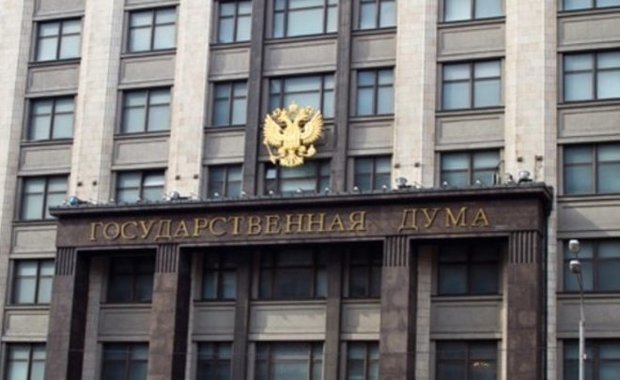
In the State Duma, former head of the committee on ethnic affairs Gadzhimet Safaraliev and his successor in this position deputy Ildar Gilmutdinov publicly expressed their categorical disagreement with the draft bill. Deputy Chairman of the State Duma Committee on housing policy and housing and communal services Alexander Sidyakin openly expressed his disagreement with the new bill and said that he would vote against it. The new document has already been dubbed ''the law against ethnic languages''. As a result, due to public pressure and broad resonance, the law on ethnic languages was decided to postpone until the autumn session.
In Tatarstan, the fears of school principals are fully justified. Nobody wants to live in a time of change, which, according to teachers, consistently lead to degradation of education, culture and customs. Many peoples living in Russia are gradually losing their language environment. And this fact is undeniable. The question of learning the native language in the family is a separate topic for discussion. It is important to understand that the national policy of the state cannot be limited to the sphere of domestic and family communication. Modern city children have no place to speak their native language, except at the lessons of their native language at school. But the new bill may deprive of even this minimum possibility.
''Previously, parents had the right to choose the language of education and optional disciplines. Now we have the chapter, according to which parents have the right to choose the language of education and optional disciplines, including the native languages and the state languages of the republics. So, they will be taught only as optional disciplines,'' explains Marat Lotfullin, senior researcher at the Institute of History of the Academy of Sciences of the Repulic of Tatarstan.
The study of native ethnic languages of many peoples in Russia will be possible by law, but under limited conditions. If the school is able to provide the native language with so-called overtime hours. To assess the full depth of the problem, you need to understand what overtime hours or extracurricular lessons are. This is an optional educational course. The course of choice, if the school has possibilities. Without government funding. So it may happen that the second state language in the republic — the Tatar language — will have to fight for a place in the sun with robotics, beading and skillful hands.
This new document, which, according to the deputies, contradicts the Constitution, has already created a stir. But, as it turned out, no one held it in their hands, no one saw with own eyes. The project appeared on the State Duma website in early April. But the committee on education and science had already time to consider it and adopt in the first reading. Without any coordination or discussion with national regions, without public hearings or expert evaluation of scientists.
''I hope that State Duma deputies and the Russian leadership will be more attentive in this matter. Because the national issue is very delicate and sensitive. If we make the slightest mistake, a big trouble can happen,'' Deputy of the State Council of Tatarstan Razil Valeev suggested.
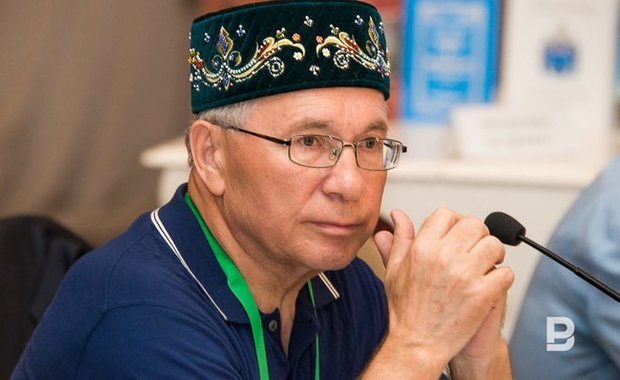
''We will not study the Tatar language!''
The issue is not just serious and very acute, but also painful, affecting the interests of many people. Obviously, there are no simple solutions. The opponents of the Tatar language already hint that we do not need republics — they are clearly unnecessary entities. Long live uniformity, ''governotization'' of Russia. It is even scary to think about what such policy can lead to.
Chairman of the Society of Russian culture of Tatarstan Mikhail Shcheglov does not give the Tatar language a chance in Tatarstan. It sounds ridiculous, even wild. It is hardly possible to imagine such a thing in a civilized European country. But rabid, one cannot say it in a different way, opponents of the Tatar language in Tatarstan do not accept any compromises. They already do not care about teaching methods, the number of hours. It's important to say the resounding and strong — No!
''Children will attend these lessons, sit there, but we will not teach anything,'' categorically declares Chairman of the Society of Russian culture of Tatarstan Mikhail Shcheglov.
''Your sovereignty is over,'' says Olga Ziyatdinova-Gavrilenko.
One of the most principled and ardent opponents of the study of the Tatar language, Olga Ziyatdinova-Gavrilenko, a faithful colleague of Mikhail Shcheglov and participant in the protests. In Kazan she is well-known due to a scandalous review of extremist nature that offends the Tatars. Later, Ziyatdinova-Gavrilenko explained that the humiliating Tatar records were made by her son, who, in her words, was forced to learn the Tatar language.
Further development of history looks very ugly. According to the Telegram channel ''Tatar Yakudza'', not so long ago the apartment of Olga Ziyatdinova was searched. It was carried out within the investigation of the case initiated against the woman in February of this year. She is suspected of violating the law under the article No. 282 of the criminal code ''Incitement of hatred or enmity''. The authors of the Telegram channel claim that investigators in Ziyatdinova's apartment seized a computer and electronic media. Among them, it was found a record with depraved actions of Ziyatdinova in relation to her drunk husband. The investigators found, according to the authors of the Telegram channel, that the video was made by the minor son of Olga Ziyatdinova.
If only Ziyatdinova was distinguished by a militant position on this issue. If you read what some opponents of the Tatar language write on the forums, it becomes scary.
''I have personally encountered insults. ''Churka'', ''cheplashka''. There is the concept of aggressive minority. And it often screams so loud that it seems that it's a lot of people. But they do not represent anyone. The Russian population is so tolerant, we are so accustomed to each other. I have many friends of Russian ethnicity, who, going outside of Tatarstan, say, ''We are Tatars,'' says the head of conceptual platform TatPolit Ruslan Aysin.
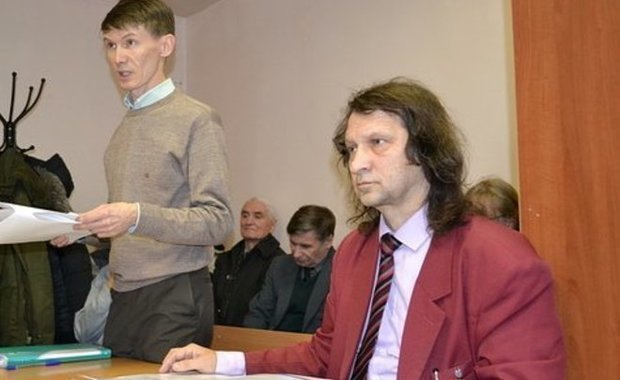
Supporters of the mandatory study of the Tatar language in the republic are a clear majority and this should be taken into account. Director of the school Solntse Pavel Shmakov gives a strong argument in favour of the policy of bilingualism — the experience of European countries.
''In Finland, the language issue was solved beautifully. In the 1st grade children begin to learn Finnish, in the 3rd grade they are required to choose another foreign language, in the 5th they are added another language, and they choose one more language in the 7th grade. So, in addition to Finnish children learn three additional languages. Of these three languages, one of them necessarily must be Swedish. It turns out, everyone knows both Finnish and Swedish,'' says Shmakov.
These arguments don't work out yet on Mikhail Shcheglov and his colleagues. Whether they can influence in principle — it is a big question. Too different positions.
Who knows what the championship holds?
Twenty-four days have left until the World Cup. Tatarstan is looking forward to the big sports event. Kazan is ready to host the World Cup at 97% — this assessment was given last week by sports minister Vladimir Leonov. Four weeks before the start of the world championship, 95% of tickets have been sold for the matches held in Kazan. 53% of this amount was purchased by foreigners. On Thursday, the capital of Tatarstan hosted perhaps the most important event of the preparatory stage — the main Cup of the FIFA World Cup arrived in Kazan. It is made of pure gold. By the way, the main prize visited more than 90 cities in 50 countries from January to April. Within three days, Kazan residents and guests of the capital had a unique opportunity to see this main football trophy and take pictures.
What surprises and interesting events Kazan has prepared for the fans and guests of the championship was told by director of the committee for tourism development of the executive committee of Kazan Daria Sannikova. New excursions and routes have appeared in the capital of Tatarstan.
''From May 1, the double-decker bus launched a new route. In addition to the historical cultural centre, it haas been added with the left bank of the Kazanka River,'' Sannikova revealed the details.
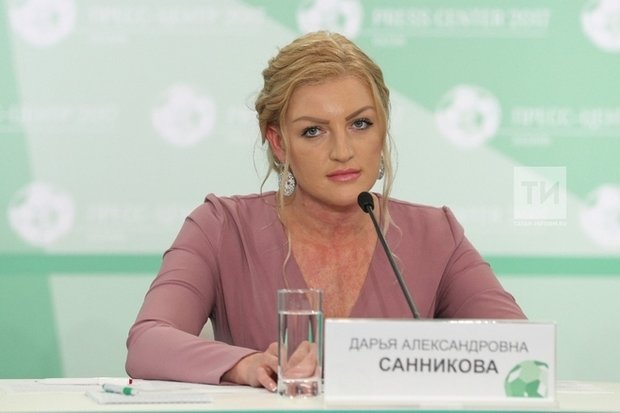
The tour lasts one and a half hours in eight languages. There is also a unique offer for night life lovers. It can be used from 10 PM until dawn.
''One of the new introductions – the night music bus. This is a joint project of the city hall with us. It is possible not only to eat inside the bus, to listen to great music, but also to receive information,'' Sannikova explained.
The first stop — Tatarskaya Usadba. Here the fans will have the opportunity to assess the national peculiarities and to get acquainted with the main Kazan oracle. If Germany had Paul the Octopus, we have our own Kazan oracle — Boris the Goat. For already a year it has predicted the results of the matches of the hockey club Ak Bars and never made a mistake.
Who is he — the fan coming to Kazan? Daria notes that the top 5 includes the French, Spanish, Australians, Colombians and Chinese. There will be a lot of Russian fans. There are already forecast figures. Tourists who come to Kazan for the championship will spend 20 billion rubles.
''There will be a lot of stylized parties just for those teams that come to us. For example, for the Iranians there will be their favourite singer Arash,'' Sannikova said.
''The next stop is the Kazan Kremlin. From the Kazan Kremlin, you can get to the fountain of love in the Leninsky Garden, plus you can do a photo shoot. There is such project on the embankment of Sochi, as well as in the Central Park of New York there are such rickshaws,'' Daria Sannikova told about the further tourist route.
In total, more than a hundred cultural events are planned in Kazan. Sabantuy, for example, will be held on June 23. The Hermitage will bring the exhibition Royal Gifts. The Tretyakov Gallery — The Wanderers. There will be the festival Kremlin Confederation of ART.

Most of the souvenirs are tubeteikas, silk scarves with national ornaments and Tatar dolls. Navigation in the city has been updated for the convenience of tourists and fans — new signs have been installed. The information tents, where they will help in 6 languages, will start to work on June 1.
The next stop in the tourist route is Millennium Square. The main trophy of the championship — the golden cup — was brought here on Thursday. The award weighs 6 kg 142 grams of pure gold.
''The biggest chak-chak in Russia will be prepared in Kazan. The delicacy weighing about 1,300 kg will be made in the form of football ball,'' Sannikova shared the details. We will surprise the guests at the festival of fans. Now the site preparation is being completed, 60% of the total amount of work has been completed, the space will be completely updated from Kozya Sloboda metro station to the Kazan Chasha. The territory will be united by a picture of the trajectory of the ball, an improvised throw will end in the square in front of the building Tatmedia, where there will be a composition of 32 balls (by the number of countries participating in FIFA). It has remained only to lay the lawn, install fixtures, art objects and a large screen, which will show all the matches of the World Cup.
''The festival will start work two hours before the broadcast of the first match and will finish work an hour later after the last match,'' said Sannikova.
The final stop in the bus tour is Kazan Arena.
''The stadium after May 31 will be fully transferred to the operational management of the organizing committee,'' said minister of youth and sports Vladimir Leonov. ''Kazan Arena has changed. For the best quality, the media centre has been expanded, there is free Wi-Fi at the stadium now, a full house is expected at all six matches,'' Leonov noted.
Problems of modern journalism
On May 19, workers of the republican media celebrated their professional holiday. The important event on the eve of the holiday was summing up the results of annual republican journalistic contest Bellur Kalem, or Crystal Pen. The best representatives of the industry were awarded at the ceremony. Fifteen people received the title ''Honored worker of press and mass communications of the Republic of Tatarstan''.
Roza Galyamova has long been rightly retired, but when the team of the newspaper Kama Yagy from Laishevo said to her that ''it is necessary'', the woman immediately responded ''yes''. She says that she was brought up this way, and the situation at the editorial office was almost hopeless. Roza Galyamova returned not just to support her native publication, but she also occupied three positions at once: a translator of texts from Russian into Tatar, proofreader and deputy editor-in-chief for dubbing.
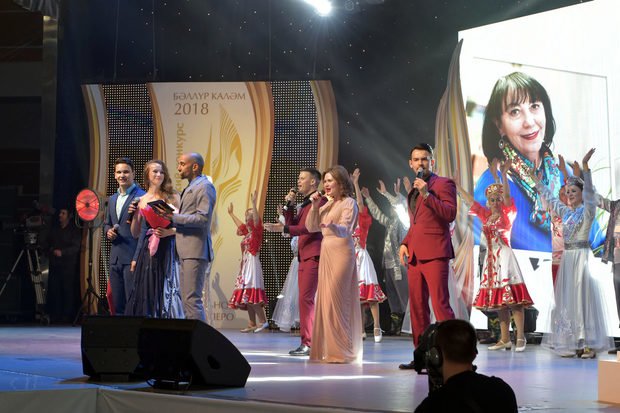
Two employees out of ten are already of retirement age. They have to work a lot. Correspondents post materials in the newspaper, on the website, take photos and shoot videos. Despite overtime, the salary leaves much to be desired. Therefore, young cadres gradually flow to the capital.
Time, as you know, goes quickly. It is clear that someone will have to replace the older generation. The question is — who? The heads of many regional media do not have a clear answer to this question. There are fewer and fewer young professionals with high-quality professional training. There is another problem — the level of training of young journalists do not keep up with modern digital technologies. And this, unfortunately, is a sad fact.
''Today, high-quality journalism lags behind the real needs, opportunities that technology gives. It is inferior in comparison with that quality that journalism had before, in comparison with the expectations, requirements that were 20-25 years ago,'' says Leonid Tolchinsky, the head of the Higher school of journalism and media communications at KFU.
The situation is aggravated by the fact that the KFU full-time department of the Higher school of journalism and mass communications has switched to study-for-fee form of education. That is, the main alma mater of the republic and the only one in the country that trains Tatar-speaking specialists is now engaged in education only for money. Not everyone will agree on such conditions. Future entrants can only hope for support from the outside.
''There is also another mechanism. It has been tested in real economy very well. This is when the employer begins to participate in the training process,'' Tolchinsky believes.
Only TNV TV channel has relied on this practice so far. Last week the competition Ayda na TV, which started on 5 April, finished. In a short time, participants were to prepare an essay, video presentation and demonstrate interviewer skills. Out of 41 contenders for the victory, three best ones were chosen.
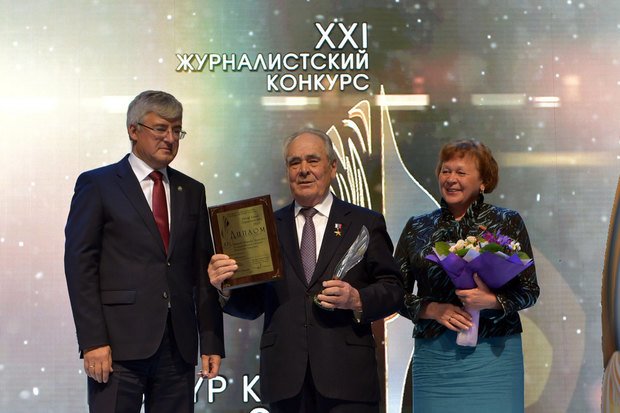
Bellur Kalam, or Crystal Pen, is a competition of professional skill, and a place of meetings of all journalists and, of course, good help and incentive in work for creative workers. The winner of Grand Prix of the XXI competition Crystal Pen was the deputy editor-in-chief of the newspaper Vatanym Tatarstan, Gabdulbar Rizvanov. He was awarded the symbol of the competition Crystal Pen and the keys to a LADA Kalina car.
Special nomination of the competition Priznanie this year was awarded to State Councilor of the Republic of Tatarstan Mintimer Shaimiev. Twenty years ago, Crystal Pen was going to be presented to the first president of Tatarstan, as a man and leader open to the media. However, that time Mintimer Shaimiev convinced members of the contest commission not to do that. And now, two decades later, chairperson of the Union of Journalists of Tatarstan Rimma Ratnikova presented the long-awaited prize to Mintimer Shaimiev with applause from the whole audience.
''We do the common deal. And we do it for our future, for our children. This is our wealth,'' Shaimiev said at the awarding ceremony.